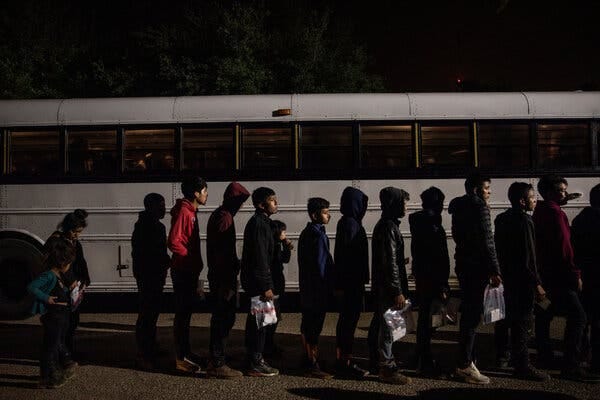Curious Reads: See No Evil
Child labor is still happening in the U.S.... and you and I may have benefited from their work. 😞
Hello friends, Liz here.
#1 Today’s “top of the fold” story is American child laborers.
That is, the NY Times has reported that the U.S. is seeing exponential growth in migrant children crossing the border without parents, surrendering to ICE and then being released to sponsors who send them off to do dangerous jobs.
Yes, really.
Gear up, this is a long read and a heavy topic. (We can do it!)
Let me break it down:
Unaccompanied minors are entering the U.S. in record numbers, often from central American countries.
They are turning themselves in to border agents, who immediately enroll them in government programs to get them out of housing which is often inadequate and/or neglectful in its care of migrant children.
To avoid this unfair detainment, government agencies like HHS has been pressured to release children as quickly as possible into the world. When kids offer a name for an adult they know in the U.S. (called their “sponsor” in migration parlance), HHS is supposed to run stringent int…



